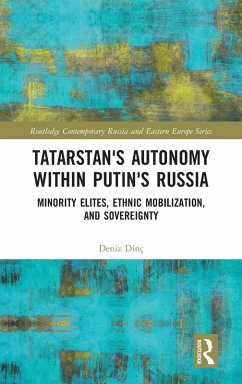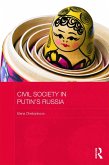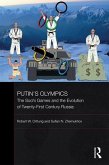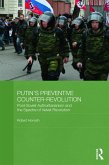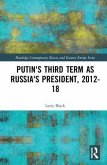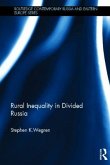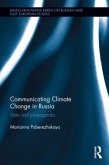This book explores how the Volga Tatars, the largest ethnic minority within the Russian Federation, a Muslim minority, achieved a great deal of autonomy for Tatarstan in the years 1988 to 1992, but then lost this autonomy gradually over the course of the Putin era. It sets the issue in context, tracing the history of the Volga Tatars, the descendants of the Golden Horde whose Khans exercised overlordship over Muscovy in medieval times, and outlining Tsarist and Soviet nationalities policies and their enduring effects. It argues that a key factor driving the decline of greater autonomy, besides Putin's policies of harmonisation and centralisation, was the behaviour of the minority elites, who were, despite their earlier engagement in ethnic mobilization, very acquiescent to the new Putin regime, deciding that co-operation would maximise their privileges.
Hinweis: Dieser Artikel kann nur an eine deutsche Lieferadresse ausgeliefert werden.
Hinweis: Dieser Artikel kann nur an eine deutsche Lieferadresse ausgeliefert werden.

